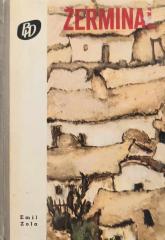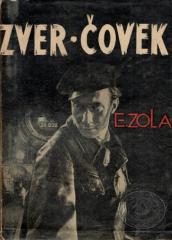Émile Zola
Émile Zola (1840–1902) was one of the most important French writers and the founder of naturalism in literature. He was born in Paris and spent his childhood in Aix-en-Provence. After the death of his father, the family fell into poverty, which strongly influenced his later work.
Zola began his career as a journalist and literary critic, and gained international fame with the extensive novel "Thérèse Raquin" (1867), with which he announced the naturalistic approach - the depiction of people as products of heredity and social conditions. The largest part of his work is the cycle "Rougon-Macquart" (1871–1893), consisting of 20 novels, in which he depicts French society during the Second Empire through the fates of one family. Among the most famous works of the cycle are "Germinal", "L'Etre", "Nana" and "Les Puppies".
Zola is also known for his political involvement, especially in the Dreyfus affair, when he defended the unjustly convicted Jewish officer Alfred Dreyfus with an open letter "I Accuse!" (J'Accuse!, 1898). In doing so, he demonstrated his commitment to truth, justice, and human rights, risking his own freedom and reputation.
Zola died in Paris in 1902, under suspicious circumstances – possibly from carbon monoxide poisoning. His work remains the foundation of French naturalism and a lasting inspiration for literature and social thought.
Titles in our offer
Žerminal
In his best work, Germinal, Émile Zola realistically described the inhuman living and working conditions of miners in northern France in the 60s of the 19th century.
Zver-čovek
The novel explores the destructive forces of inheritance, passion, and violence in modern industrial society. The action takes place largely on the railroad, a symbol of speed, destiny, and inevitable doom. “Beast Man” is the first description of crime in

